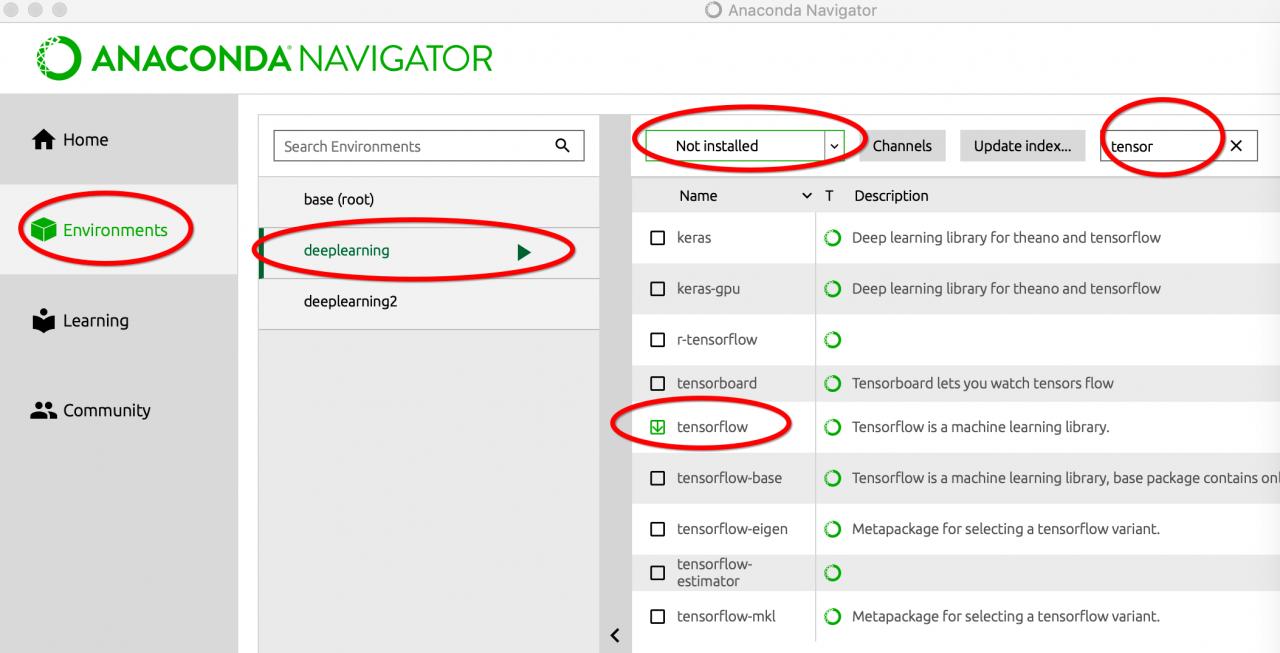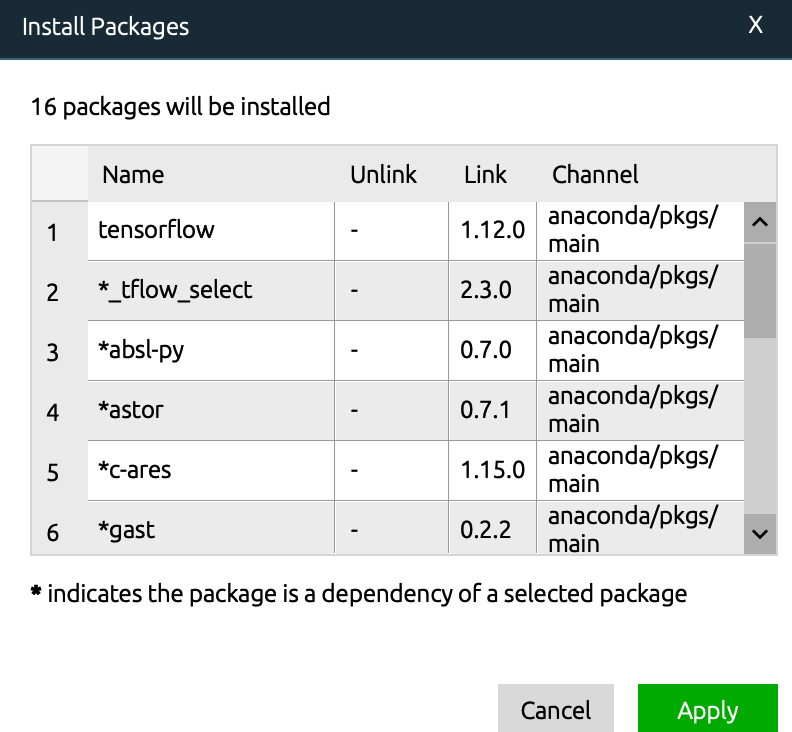When we run in jupyter notebook, we may encounter the situation that there is no certain package, as follows:
---------------------------------------------------------------------------
ModuleNotFoundError Traceback (most recent call last)
<ipython-input-1-24005895b065> in <module>
2 import h5py 3 import matplotlib.pyplot as plt ----> 4 import tensorflow as tf 5 from tensorflow.python.framework import ops 6 import tf_utils ModuleNotFoundError: No module named 'tensorflow'First of all, my jupyter notebook runs under the local environment of deep learning in Python 3
userdeMacBook-Pro:~ user$ conda activate deeplearning
(deeplearning) userdeMacBook-Pro:~ user$ jupyter notebookBut it’s strange that I have installed tensorflow in my python3 environment, but it still doesn’t appear in jupyter
(deeplearning) userdeMBP:~ user$ python
Python 3.7.2 (default, Dec 29 2018, 00:00:04) [Clang 4.0.1 (tags/RELEASE_401/final)] :: Anaconda, Inc. on darwin Type "help", "copyright", "credits" or "license" for more information. >>> import tensorflow >>> tensorflow.__version__ '1.13.1' >>> It can be seen that tensorflow version 1.13.1 is installed
The solutions are as follows:
Open your anacondanavigator, select it according to the figure below, and then apply to install it

I made a mistake:
UnsatisfiableError: The following specifications were found to be in conflic
pytorch
tensorflow == 1.11.0
use conda info <package> to check dependenciesAfter using CONDA info tensorflow to view the dependencies, it is found that tensorflow & lt= Python 3.7 is not supported in version 1.12.0, and the highest version of tensorflow provided in Anaconda navigator is 1.12.0, so I reduced it to version 3.6, that is, running under the specified environment of deep learning
(deeplearning) userdeMBP:~ user$ conda install python=3.6Of course, this may lead to the loss of some previously installed packages, because when you import tensorflow again, you can see that the previously installed tensorflow is gone
(deeplearning) userdeMBP:~ user$ python
Python 3.6.8 |Anaconda, Inc.| (default, Dec 29 2018, 19:04:46)
[GCC 4.2.1 Compatible Clang 4.0.1 (tags/RELEASE_401/final)] on darwin
Type "help", "copyright", "credits" or "license" for more information.
>>> import tensorflow
Traceback (most recent call last):
File "<stdin>", line 1, in <module>
ModuleNotFoundError: No module named 'tensorflow'After that, you can see that the installation is successful

Then look at:
(deeplearning) userdeMBP:~ user$ python
Python 3.6.8 |Anaconda, Inc.| (default, Dec 29 2018, 19:04:46)
[GCC 4.2.1 Compatible Clang 4.0.1 (tags/RELEASE_401/final)] on darwin
Type "help", "copyright", "credits" or "license" for more information.
>>> import tensorflow
>>> tensorflow.__version__
'1.12.0'
>>>It can be seen that tensorflow = = 1.12.0 is successfully installed in the corresponding environment deep learning
If there is still unsatisfiable error in the process, in addition to the dependency problem, you can also try:
userdeMBP:~ user$ conda update condaupdated
Similar Posts:
- Error in importing tensorflow in Jupiter Notebook: no module named tensorflow solution
- [Solved] ImportError: cannot import name pywrap_tensorflow
- Error reporting of importing tensorflow package from pycharm
- Using the jupyter notebook (error/usr/bin/python3: no module named ipykernel) on the local browser remote server_ launcher)
- [Solved] Error caused by correspondence between tensorflow GPU version number and CUDA
- import win32api; Importerror: DLL load failed: the specified program was not found
- [Solved] Exception: Jupyter command `jupyter-notbook` not found.
- Problem solving of jupyter notebook dead kernel
- Bug—-QXcbConnection: Could not connect to display Aborted (core dumped)
- How to Solve Anaconda Error (Three Errors to Solve)